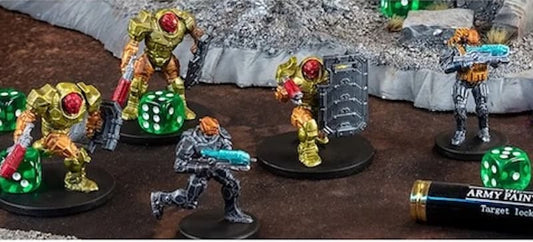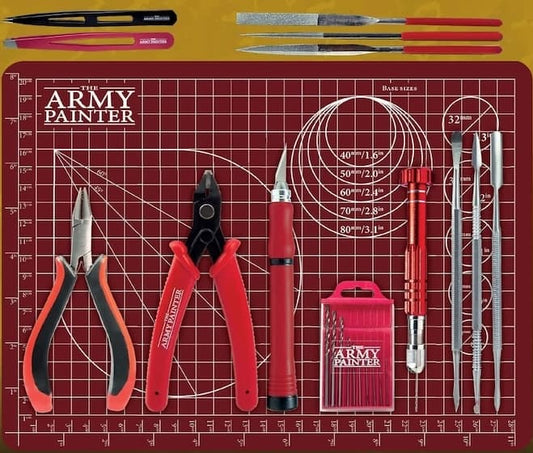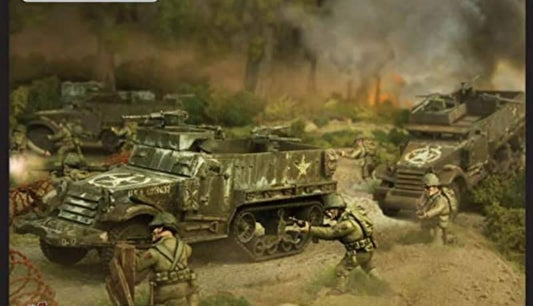Think miniature wargaming is just a throwback? It’s more than meets the eye. Sure, video games from Atari to the latest PlayStation have their thrill. But there's a unique kick in miniatures. They let you craft stories, plot strategies, and experience the joy of something tangible. Games like Black Powder Civil War bring imagination to life, right on your tabletop. Below are several reasons why many game enthusiasts prefer miniature wargames over video games—and why you might just be tempted to swap your joystick for a paintbrush.
1. Depth of Strategy and Realism
While video games like Counter-Strike rely on fast decisions and reflexes, miniature games like Bolt Action need a different approach. Players in Bolt Action immerse themselves in scenarios that mirror real warfare. They think about troop movements and the impact of the terrain. Each unit's abilities also play a crucial role. This style of gaming goes deeper than quick reactions. It calls for thoughtful, informed decision-making, drawing players into a more realistic and strategically enriched world.
2. Tangible Expression and Craftsmanship
Unlike video games, miniature wargaming brings a hands-on element. Players build and paint their own models and armies, which fosters a sense of artistic expression rarely found in digital gaming. This level of personalization and artistic involvement sets miniature wargaming apart, offering a uniquely satisfying and immersive experience.
3. Different Community Spirit
Miniature wargaming offers a unique communal aspect that sets it apart from video games. In this hobby, players often meet in person. This face-to-face interaction fosters strong community bonds. While video games also create communities, they mostly do so online. The direct, in-person interaction in miniature wargaming creates a different kind of community spirit.
4. Timelessness
Video games tend to be tied to their era, often becoming outdated as technology advances. In contrast, historic miniature wargames possess a timeless quality. The core of these games remains largely unchanged over the years, similar to how traditional RPGs like D&D have maintained their essence since the 70s. This timelessness ensures that miniature wargaming continues to appeal across generations, making it a hobby that can be enjoyed and shared for a lifetime.
5. Room for Modification and Personalization
In video games, players are often limited by the game's programming and design. If something doesn't work perfectly or if a player wishes to change a game aspect, they're usually out of luck. However, in miniature wargaming, there's immense flexibility to modify and personalize. Don't like a particular rule or want to introduce a new scenario? You can easily adjust or create it.
6. Reliable Form of Entertainment
Miniature wargaming also stands out because it doesn't need electricity or technology. You can enjoy it even when the power is out. Video games need a device with power, but all you need for miniatures is dice and a flat surface. This simplicity lets you play wherever and whenever you want, free from concerns about battery life or technical issues.
7. A Stress Reliever
Physical crafting in miniature wargaming acts as a unique stress reliever. Hands-on activities, such as painting and assembling models, require a level of concentration and attention to detail that engages the mind in a different way. This focused activity can have a calming effect, as it allows players to immerse themselves in the task and momentarily set other concerns aside.
8. Historical Knowledge and Learning
Miniature wargaming often drives players to explore historical research, an aspect not typically highlighted in video games. When players build and paint models from specific eras, curiosity about the history behind their armies grows. They start learning about past events, different cultures, and military tactics. This process transforms the game into an educational journey.
9. Enhanced Spatial Awareness
Miniature wargaming uniquely develops spatial awareness and planning skills. Players arrange their armies and navigate varying terrains on the battlefield, which requires a keen understanding of space and distance. This aspect of the game sharpens the ability to visualize and strategize in a three-dimensional space, a skill that is less emphasized in the two-dimensional interface of most video games.
10. Physical Health Benefits
Engaging in miniature wargaming can have unexpected physical health benefits. The activity involves standing, leaning over tables, and moving around during gameplay, which can be more physically active compared to the sedentary nature of video gaming. Additionally, the fine motor skills involved in painting and assembling miniatures can aid in maintaining hand-eye coordination and dexterity.
Final Verdict
Miniature wargaming is more than just a game. It blends creativity, strategy, and history into a unique experience. Beyond engaging the mind, it fosters community bonds and promotes physical activity. Compared to video games, miniature wargaming stands out as a richer, more multifaceted hobby that people of all ages can take up and enjoy.
Video
Infographic
Miniature wargaming blends creativity, strategy, and history into a unique experience. It fosters community bonds, promotes physical activity, and is preferred by many game enthusiasts over video games. Find out why in this infographic.




